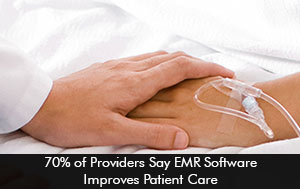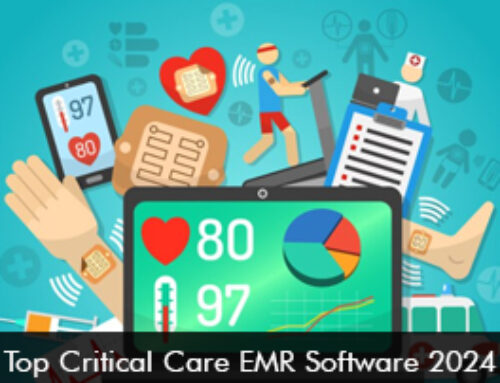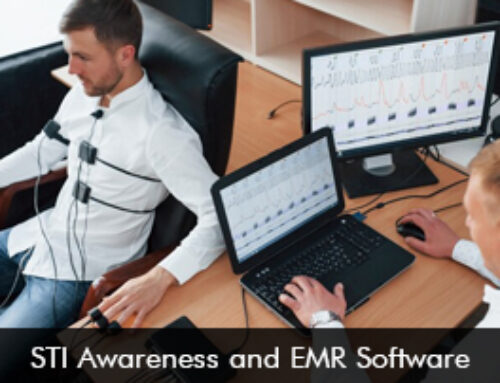Many providers think that Electronic Medical Records (EMR) Software technology worsens provider burnout. According to a study, 64% of doctors believe that EMR software have a positive effect on satisfaction levels of patients. New research suggests EMR software technology may have a relatively positive reputation among healthcare professionals, with almost 70% of surveyed providers reporting that Electronic Health Records (EHR) Software systems improve care quality.
Researchers surveyed around 3,100 healthcare professionals and 15,000 healthcare software consumers across 15 countries around the world to scale opinions of EHR software technology in the current digitized healthcare system scenario.
While researchers found many healthcare professionals see the benefits of EMR Systems technology and other health IT tools in clinical care, providers in most countries are not using healthcare IT to its fullest potential.
80% of medical providers have engaged in health data exchange with other providers within their own care facility. However, only 32% of surveyed clinicians have shared patient health data with providers outside their facility.
Almost 56% of providers who do not share patient health data with outside hospitals and health systems lack the health IT infrastructure to do so. The lacking of EHR interoperability among different healthcare provider systems restricts health data exchange for almost 50% of the physicians.
50% of providers also mentioned reservations over data privacy and security as a threat to health data exchange with care facilities outside their health IT software system.
Furthermore, this general lag in advanced health IT use among care professionals, many clinicians also struggle with top EMR software implementation and administrative burden.
Health data exchange between patients and providers is similarly low. Only 36% of surveyed patients who use patient portals or other healthcare IT regularly share their health information with their provider. Meanwhile, 26% of patients share health data with providers when they have a specific concern.
Despite these drawbacks, most surveyed healthcare providers agree cloud-based EMR software technology has had an overall positive impact on care quality.
Furthermore, 64% of surveyed providers said EMR technology has had a positive impact on provider satisfaction. 59% percent reported that EHR and Practice Management (PM) software use has helped to boost patient health outcomes.
Patients who engage in patient portal EMR software and other technologies to access and share their data also generally report higher levels of satisfaction.
Specifically, 82% of patients with access to their EHRs rate their experience with their providers as good, very good, or excellent. On the other hand, 66% of patients without access to their EMRs reported having a positive experience with their provider.
Lastly, patients who can access and exchange their own digital health information are more likely to have a positive perception of care quality and they are mostly satisfied with their healthcare treatment experience.
The researchers concluded by saying “The challenge, now, is to encourage more individuals to share data with their healthcare professional, giving healthcare professionals access to more up-to-date and complete information that will allow for more coordinated patient care.”







